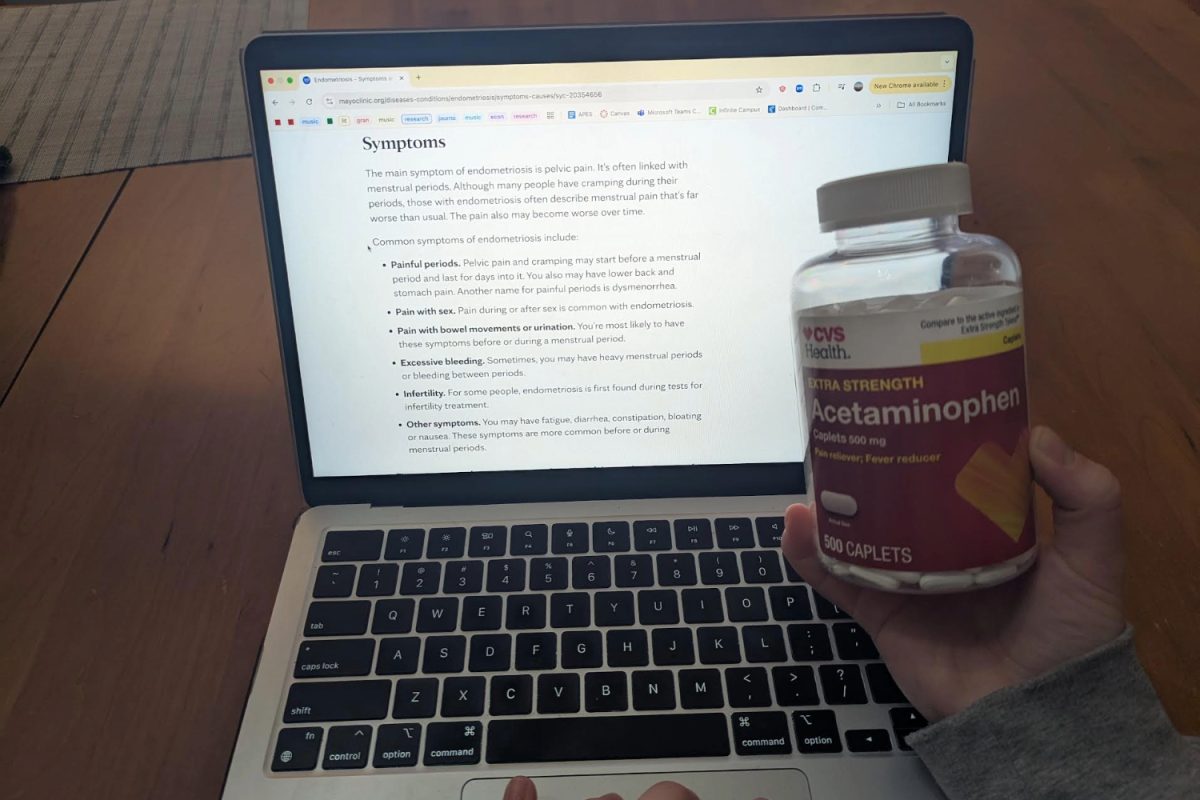Endometriosis is a medical condition that only affects women where they can experience extremely painful or irregular periods — called dysmenorrhea, fatigue, and nausea — which can lead to infertility or worse medical complications.
Despite the severity of this condition, according to Yale Medicine, it can take anywhere from four to 11 years for women to be properly diagnosed.
This diagnosis can sometimes take time due to the wide range of symptoms that can make it appear similar to other conditions such as pelvic inflammatory disease or irritable bowel syndrome (IBS). However, according to a research study from the National Library of Medicine, more concerning reasons for this difficulty in obtaining a diagnosis is medical gaslighting as a result of normalizing menstrual pain, combined with a lack of knowledge and research about endometriosis.
This phenomenon similarly occurs with other conditions solely affecting women like polycystic ovary syndrome (PCOS) which causes menstrual irregularities and pain and increases the risk of diabetes and heart disease.
Medical News Today finds that 1 in 4 women can experience period pain severe enough to impact daily life, potentially indicating bigger health issues like PCOS or endometriosis, yet this is often dismissed as simply “part of being a woman.”
This dismissal particularly occurs in the medical world according to Harvard Health. Medical gaslighting is a form of psychological manipulation when a healthcare professional repeatedly dismisses a patient’s health concerns or symptoms. The DC Journal found that 72% of women have experienced medical gaslighting, particularly in trying to get diagnoses about issues with their menstrual cycles.
Doctors may try to normalize the period pain they are experiencing, dismissing or downplaying it, and thus ignoring the fact that these symptoms could indicate a serious underlying medical condition. This can significantly delay the time it takes for women to receive a diagnosis as well as reduce their confidence in the medical system and their own ability to recognize their symptoms, which could discourage them from seeking help in the future, even if their condition worsens.
Additionally, there is an overall lack of research about these conditions, which can also hinder diagnosis. Endometriosis affects approximately 10% of women of reproductive age, and in 2020, the House approved doubling funding to $26 million for yearly research about the condition.
While this may seem adequate, Alzheimer’s disease also impacts around 10% of adults in the United States but receives significantly more federal funds for research, nearly $3.8 billion annually according to Alzheimer’s Impact Movement.
This disparity in research funds does not necessarily mean that funding for vital Alzheimer’s research should be curtailed — it simply illustrates a significant gap that should be addressed in order to help women affected by endometriosis or similar conditions.
Lack of research contributes to health professionals’ lack of knowledge of endometriosis or PCOS, reducing their ability to accurately diagnose affected individuals, and making it so there are fewer treatments available.
Additionally, the longer it takes for a diagnosis, the worse the symptoms can become, which can lead to the aforementioned long-term health effects like heart disease or infertility. Thus, research on and awareness of these conditions should be a higher priority to minimize negative health effects and the medical gaslighting that frequently occurs.






















